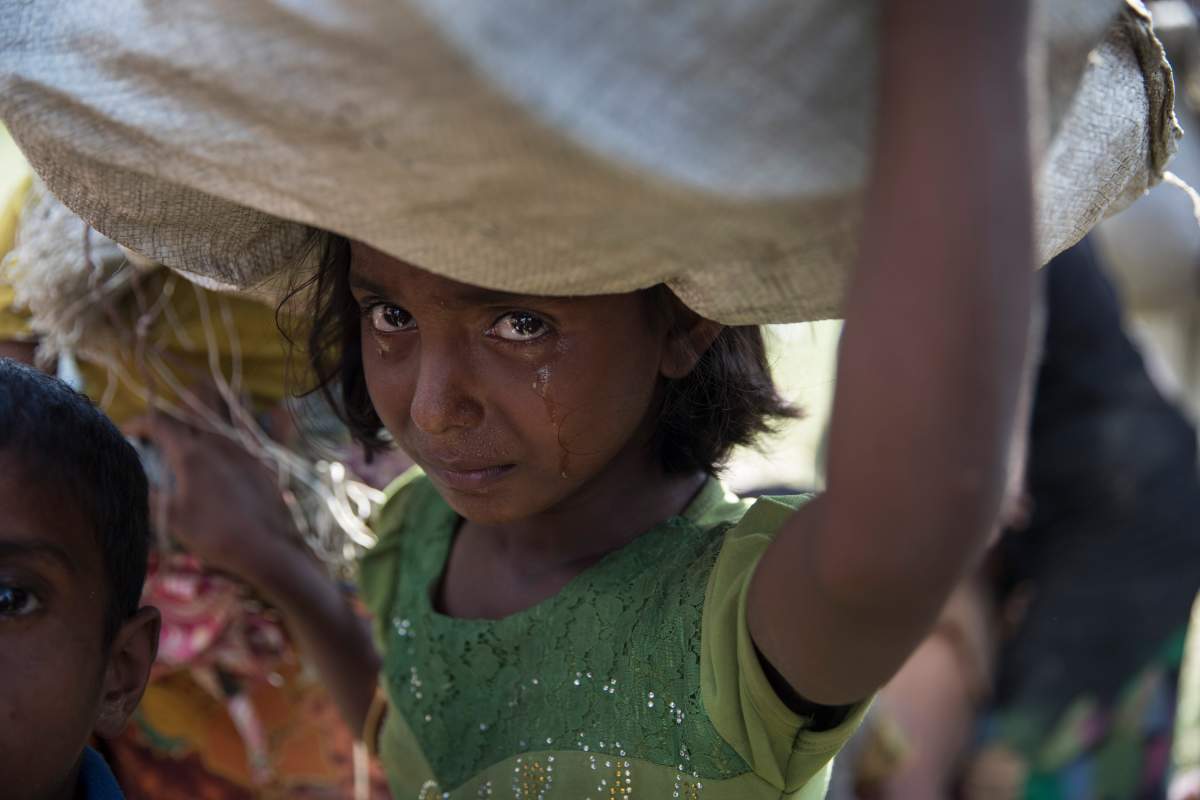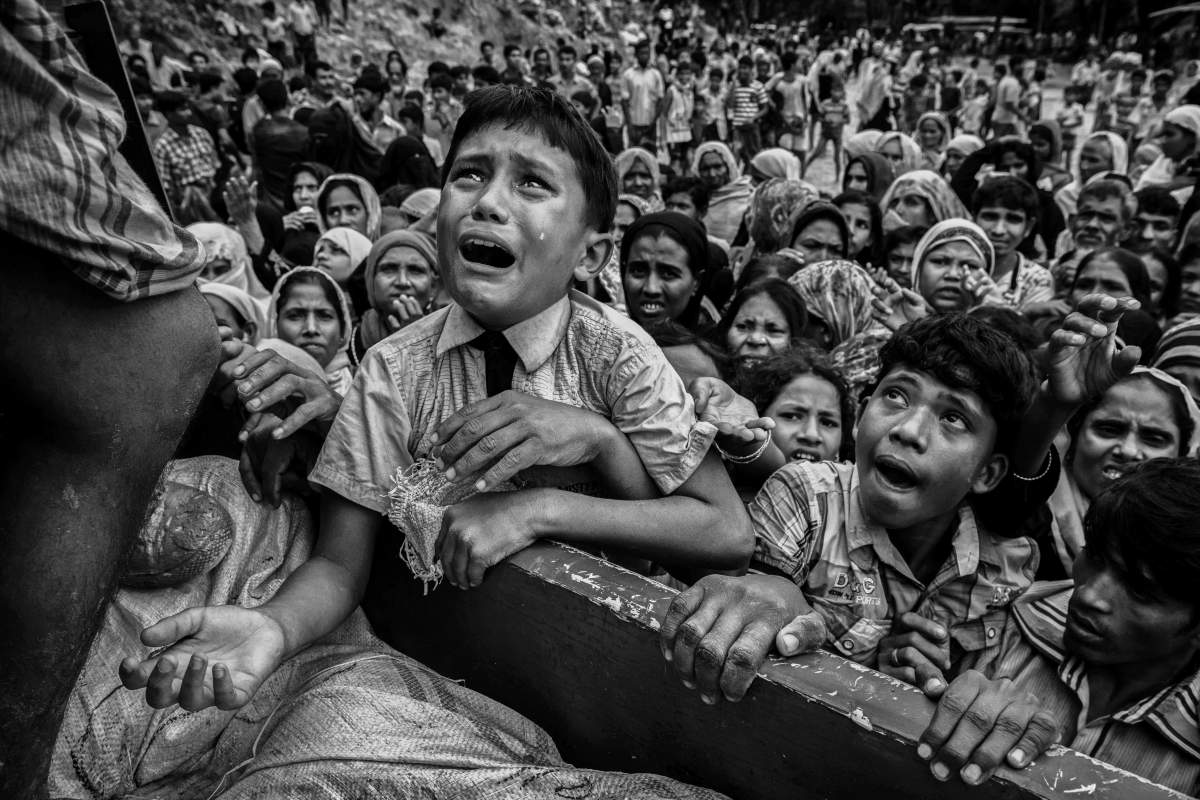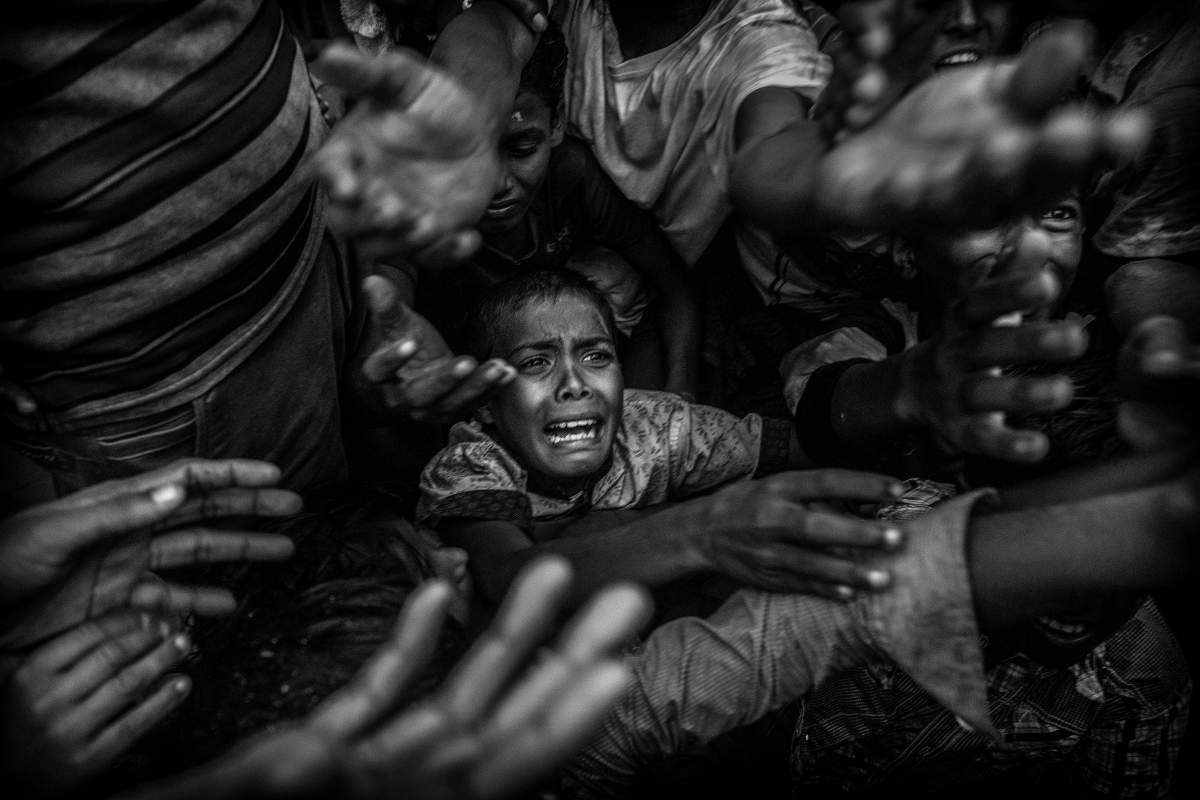More than 340,000 Rohingya children fleeing violence in Myanmar are seeing “hell on Earth” in overcrowded, muddy and disease-infested refugee camps in neighbouring Bangladesh, according to UNICEF.

Many of the children are alone, starving, in need of medical attention and at risk of being captured and thrown into human trafficking, the aid organization said.
Humanitarian organizations, like UNICEF and Amnesty International, are warning the international community if enough aid is not provided in the next six months, many of the most vulnerable — women, children and the elderly — will die.
Since late August, more than half a million Rohingya refugees have fled into Bangladesh following an outbreak of violence in Rakhine state in Myanmar causing a humanitarian crisis in the region with continued challenges for aid agencies.
But the international community, including Canada, is not doing enough to help in what the United Nations is calling, the “most urgent refugee emergency in the world,” aid groups say.
“It’s an unprecedented humanitarian crisis,” Omar Waraich with Amnesty International said. “Bangladesh is a poor country and are having to deal with a crisis beyond their means. It’s coping so far, but the situation is only going to get worse.”
Bangladesh cannot be left to deal with the situation by themselves, he said. “Why hasn’t the international community done anything?”
‘Hell on Earth’ for children
Waraich is working on the ground in Bangladesh in a massive refugee camp in Cox’s Bazar, and called it a “desperate situation.”
Rohingya children are making the dangerous trek from Myanmar to Bangladesh. Many of their parents and siblings have been killed in Myanmar and arrive at the camps alone without anyone to care for them.
They are malnourished, dehydrated, and are at risk of contracting diseases such as cholera and malaria.
WATCH: Thousands of starving Rohingya refugee children scrounge for food in Bangladesh camps

“They are then thrown into crowded bamboo tents without much food and a lack of clean water,” Waraich said. “And what’s terrible… is that the worst is not over yet.”

Get daily National news
UNICEF executive director Anthony Lake warned of threats posed by human trafficking and others who might exploit children in the refugee areas.
“These children just feel so abandoned, so completely remote, and without a means of finding support or help. In a sense, it’s no surprise that they must truly see this place as a hell on Earth,” Ingram said.
Does anyone care?
As the Rohingya crisis continues to unfold, many humanitarian organizations are left wondering why more hasn’t been done.
When Global News asked Amnesty International about this, Waraich said it seems as if people have other tragedies on their mind.
“There are a number of disasters going on,” he said. “Hurricanes, shootings, earthquakes, and people are trying their best to help out.”
But he said with the Rohingya crisis, there seems to be a reluctance to help.
WATCH: Rohingya refugees forced from temporary shelters by Bangladesh floods

“Not enough countries are calling for accountability for crimes against humanity in Myanmar,” he said.
He said in terms of speed and scale, this is the most horrific ethnic cleansing that has taken place this century.
READ MORE: Rohingya crisis explained, why the minority Muslim group is fleeing Myanmar
“And yet, some of the most powerful countries around the world and in the region, have responded with a callous indifference to the plight of the Rohingya,” he said.
What has Canada done?
Since the beginning of the year, Canada has provided $13.26 million to the Rohingya crisis. This includes $2.5 million extra given in the last few weeks after the UN made a plea to the international community.
But the UN and humanitarian agencies dealing with the Rohingya crisis in Bangladesh say they need $434 million over the next six months to help up to 1.2 million people, most of them children, in dire need of life-saving assistance.
UNICEF warned that without immediate additional funding in the next few weeks, it will not be able to continue providing life-saving aid and protection to Rohingya children.
WATCH: Canada calling on Myanmar to allow access to assess Rohingya situation

So far, UNICEF said it has received only seven per cent of the $76 million it needs.
When Global News asked the federal government why more money hasn’t been given, a spokesperson said, “they are exploring more ways to give more.”
COMMENTARY: Canada needs to step up and do more to help the Rohingya
Prime Minister Trudeau has condemned the violence in Myanmar and urged the country’s leader to protect the Rohingyas. But the Liberal government has still been criticized for not doing enough.
In Septemeber, an online petition called for Trudeau to revoke the Myanmar leader’s honorary Canadian citizenship. It said Aung San Suu Kyi no longer deserves the recognition she once received while standing up for freedom and democracy.
WATCH: Calls growing for Canada to step up and help end the persecution of Rohingya Muslim minority

When did the crisis start unfolding?
More than 580,000 refugees have arrived in Bangladesh since Aug. 25, when Burmese security forces began a scorched-earth campaign against Rohingya villages. Burma’s government has said it was responding to attacks by Muslim insurgents. The brutal attacks against Rohingya that followed have been described by the UN as “textbook ethnic cleansing.”
Based on interviews with more than 120 fleeing Rohingya, Amnesty International said at least hundreds of people were killed by security forces who surrounded villages, shot fleeing inhabitants and then set buildings alight, burning to death the elderly, sick and disabled who were unable to flee.
In some villages, women and girls were raped or subjected to other sexual violence, according to the report.
WATCH: Amnesty International says satellite imagery shows burned Rohingya villages in Myanmar

Buddhist-majority Burma has denied citizenship for the Rohingya since 1982 and excludes them from the 135 ethnic groups officially recognized, which effectively renders them stateless.
They have long faced discrimination and persecution with many Buddhists in Burma calling them “Bengalis” and saying they migrated illegally from Bangladesh, even though they have lived in the country for generations.
READ MORE: Rohingya Muslims watch as soldiers destroy villages in Myanmar
The UN has labelled the Rohingya one of the world’s most persecuted religious minorities.
How you can help
There are many humanitarian organizations helping out in the Rohingya crisis that you can donate to. These include:
— With files from the Associated Press
- U.S., Israel attack Iran as Trump urges Iranians to ‘take over your government’
- Read the full transcript of Donald Trump’s statement on Iran strikes
- Canadians urged to leave parts of Middle East as conflict risk grows: Anand
- Cargo plane carrying money crashes in Bolivia, killing at least 15 people, official says



































Comments
Want to discuss? Please read our Commenting Policy first.